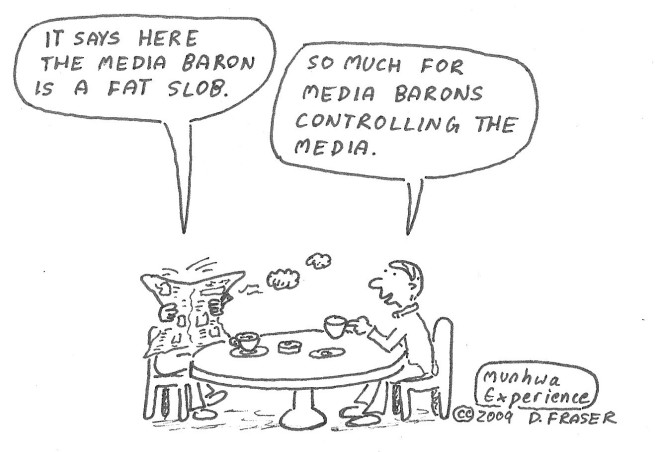Archive for the 'media' Category
Cartoon take on the iPad
The Lefsetz letter struck an interesting chord the other day:
The key isn’t to appeal to everybody, but MOST people. And never forget that the fringes are the most vocal. If you pay attention to them, you’re screwed.
(“Ratings” http://lefsetz.com/wordpress/index.php/archives/2010/03/09/ratings/)
After a focus on niches and the longtail that has opened up in the last decade, he expressed a need for a more centralising focus, for people to belong to something and that people can share in common. A good example was U2 -which is one band that does a great job of rallying and unifying people…
But what I find interesting is that it’s so true that the fringes are often the most vocal, and seem to ‘hijack’ the expression of the vast majority -Look at the religious world for example and any religion for that matter -Islam, Christianity or even atheism. The media instinctively focuses on the sensational, which will be pushed by these fringe groups -an Al Qaeda website will attract huge interest while the Muslim majority’s opinions are largely ignored. Likewise, a few radical, rightwing so-called Christians give Christianity a bad name.
But it’s not just religion -whole nations can fall victim to the media game. Back in the day, when John Howard was PM of Australia, I was often both surprised and amused living in Asia how Pauline Hanson was a household name. It didn’t seem fair that someone who represented a minority within Australia could become so well-known internationally. And it’s led to the issue of Australia being perceived as an exceptionally ‘racist’ country. Sure, racism does exist, and it shouldn’t be excused, but is Australia any worse that other countries?
After the media tries so hard to get your attention with stories on radical fringe groups and their opinions, it’s difficult to remind yourself of the important message and values of the silent majority. The media’s often trying to just sell a story rather than make an accurate representation of the world.
I was surprised at how well the latest Sade album did in the charts -an artist and band who are generally unassuming can upstage the media-dominant divas like Lady Gaga. The mainstream public can still make good choices, and aren’t so easily manipulated by the media as we may think -so I believe that’s why Sade has done well. People will still be drawn to quality music, especially in an age saturated by gimmicks.
Here’s the link of a press release from Amazon, it seems like more opportunities for writers on the internet, saving costs by keeping things online rather than printing with a 79% royalty option on the Kindle digital text platform…
http://phx.corporate-ir.net/phoenix.zhtml?c=176060&p=irol-newsArticle&ID=1376977
Saw a very interesting TV debate last night on’Fora‘ on ABC 2 (Aussie station) . They have a link to info and a download (may have to scroll down):
http://www.abc.net.au/tv/fora/stories/2009/11/20/2748926.htm
It had a good cross-section with journos from Fairfax (Sydney Morning Herald), News Limited (The Australian) and Channel 9. A big message I got out of it (I saw the last half admittedly) was that established print journalism is really feeling the pain, but we know that from Murdoch’s latest opinions. However, it’s interesting to hear it from the journalists and writers themselves, and see their point of view, not the head honcho, who we don’t really feel sympathy for.
They also discussed the advantages and uses of new social media, and acknowledge the impact and role it will play, but they also raised the fact that it’s easy to forget the costs of finding and producing good news, including the costs of investigating several stories but only one will be suitable. And I think it is a valid point -blogs by people writing for free (like me) cannot replace the time, effort and infrastructure required for investigative journalism.
So it sounds like a similar message from those feeling the impacting change on the music industry. It could be a simple hard fact that certain services just won’t be paid for like they used and therefore the quality may decrease, or have to be funded in a different way (if online advertising can’t replace the old model, and it doesn’t seem to have been successful yet). Could that mean a decrease in hard investigative journalism and similarly the quality of well recorded music? Will these services have to rely more on government funding and donations in the future?


